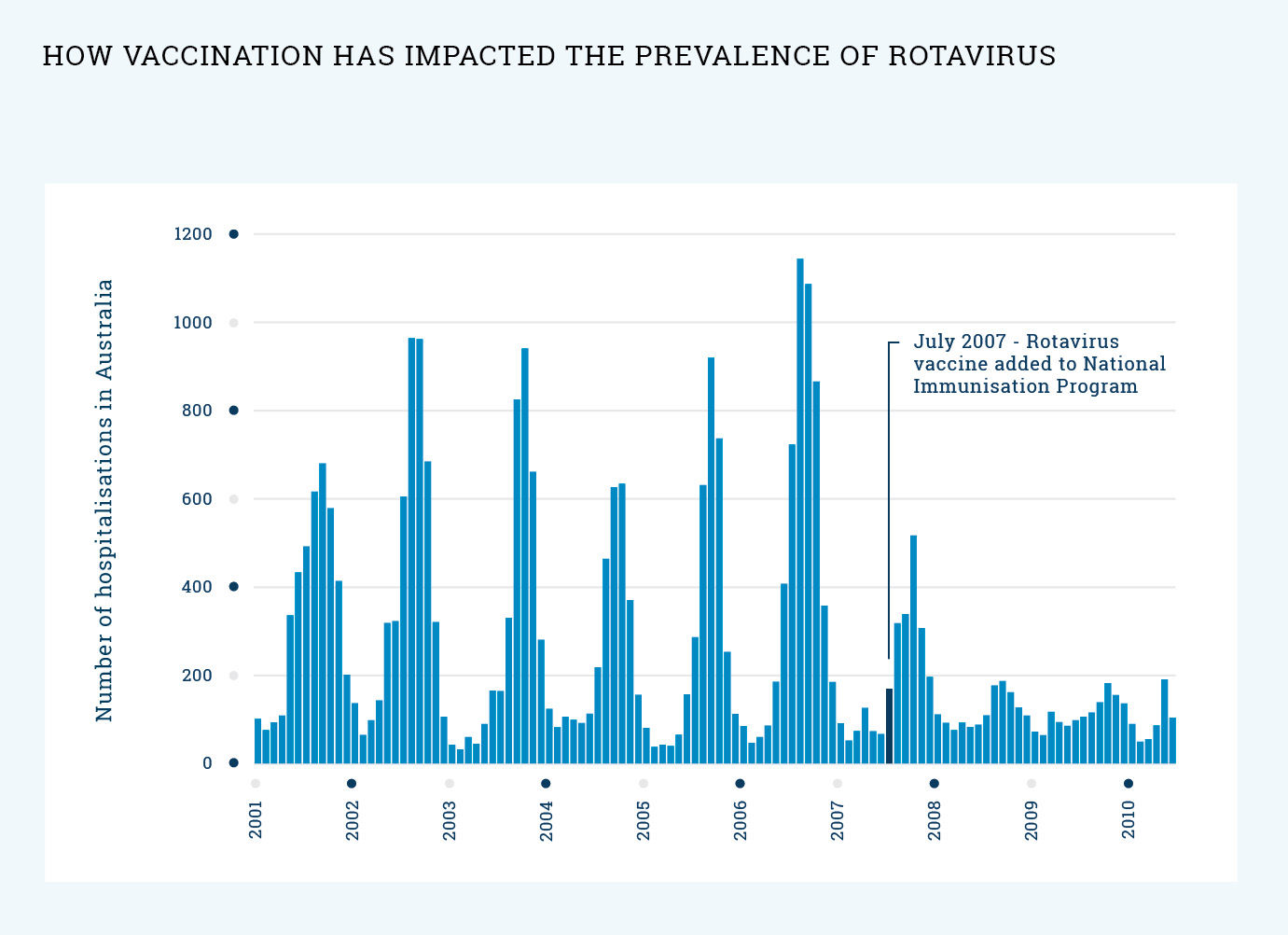Rotavirus
Key facts
-
Rotavirus causes diarrhoea (watery poo) and vomiting (gastroenteritis) that can make babies so sick they need to go to hospital for treatment.
-
The oral rotavirus vaccine is the best way to protect your child against rotavirus.
On this page
- What is rotavirus?
- What will happen to my child if they catch rotavirus?
- What vaccine will protect my child against rotavirus?
- When should my child be vaccinated?
- How does the rotavirus vaccine work?
- How effective is the vaccine?
- Will my child catch rotavirus from the vaccine?
- What are the common reactions to the vaccine?
- Are there any rare/and or serious side effects to the vaccine?
- What impact has vaccination had on the prevalence of rotavirus?
